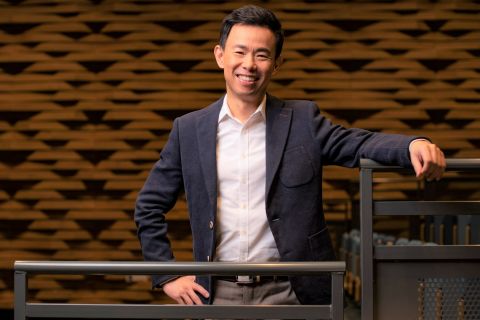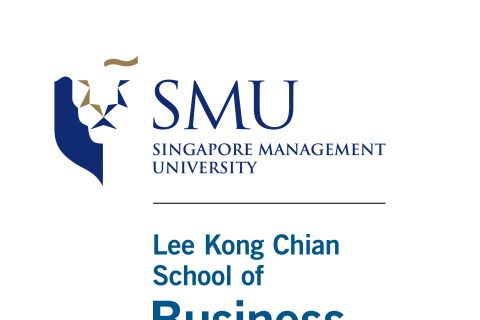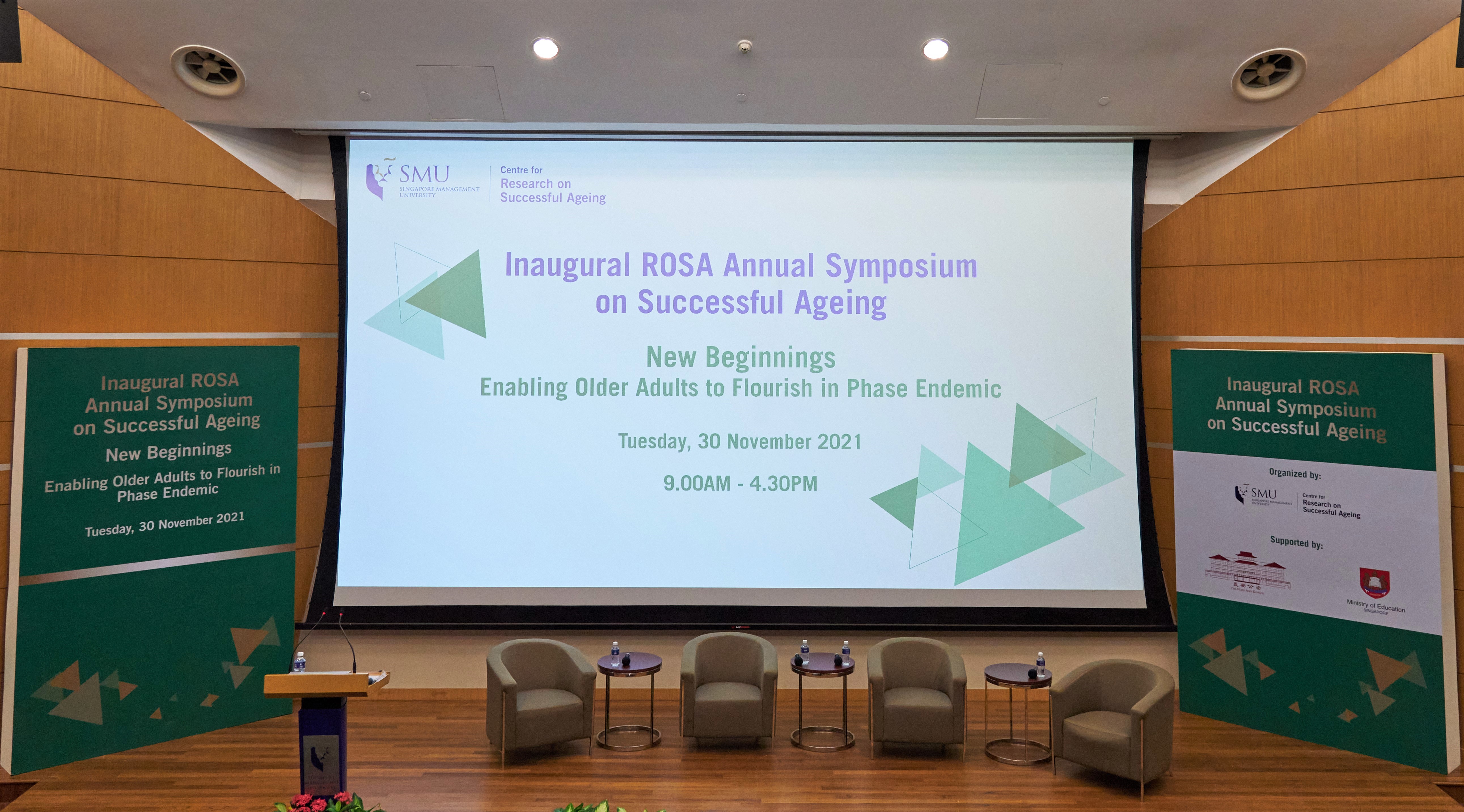
By Sheryl Lee
SMU Office of Research & Tech Transfer – As COVID-19 becomes endemic in Singapore and our population continues to age, ensuring the physical and psychological well-being of our older adults will be paramount for a more resilient society and economy, speakers said at the inaugural ROSA Annual Symposium on Successful Ageing on November 30.
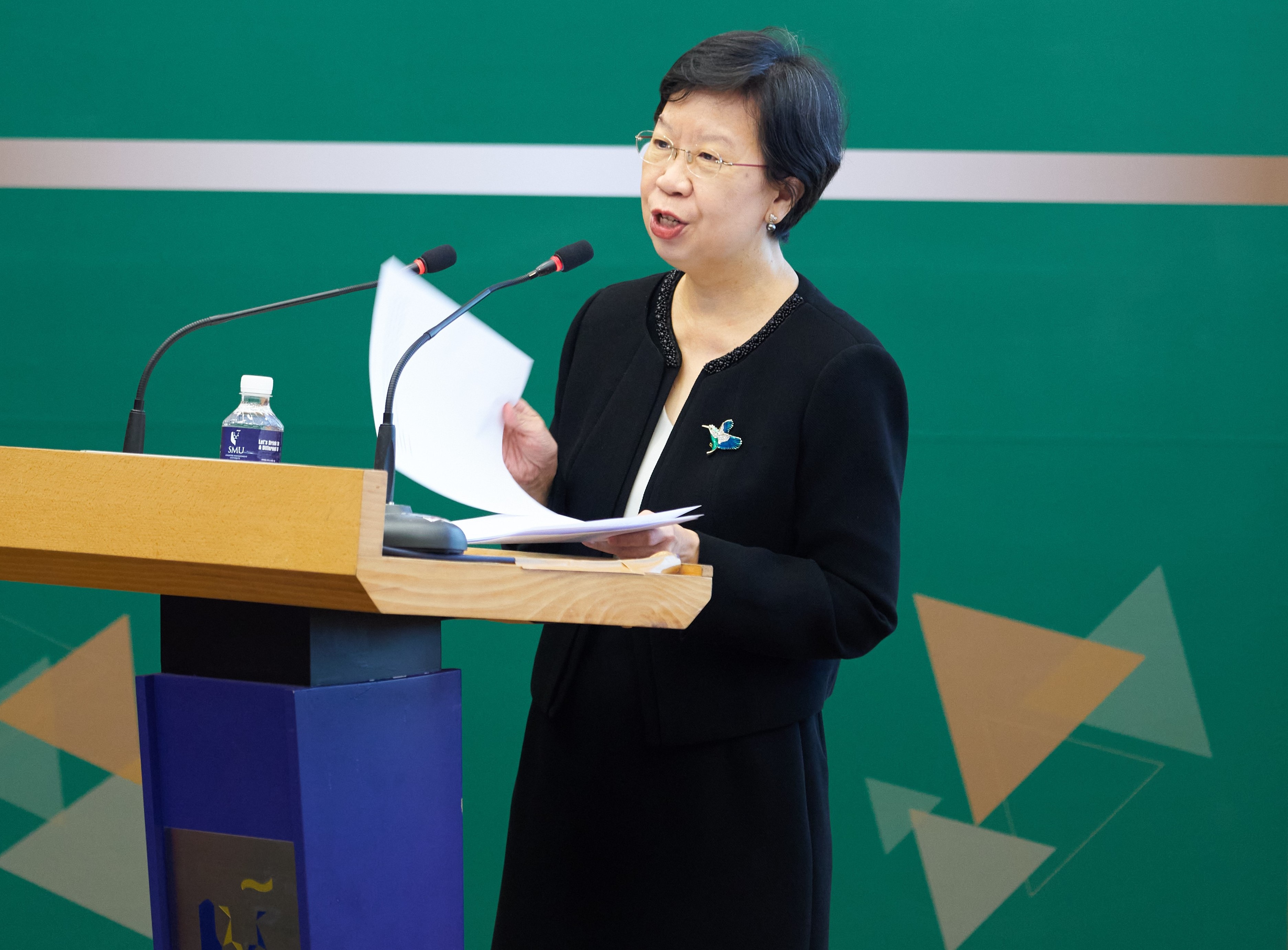
SMU President Professor Lily Kong kicked off the symposium with an opening message
As we emerge from the pandemic, older adults are one of the most vulnerable segments of society in need of support, SMU President Professor Lily Kong highlighted in her opening speech. Referencing research from SMU Centre for Research on Successful Ageing (ROSA), she emphasized that the well-being of older adults had declined sharply relative to pre-COVID periods, and this trend has persisted throughout the pandemic.
“As we transition into the endemic phase, many older adults remain concerned about what this may mean for them,” she continued, citing a ROSA survey conducted in October 2021 that showed over 80% of older adults “slightly agreed, agreed, or strongly agreed they were worried about what living with COVID-19 would mean.”
Older adults a wealth of ‘accumulated human capital’
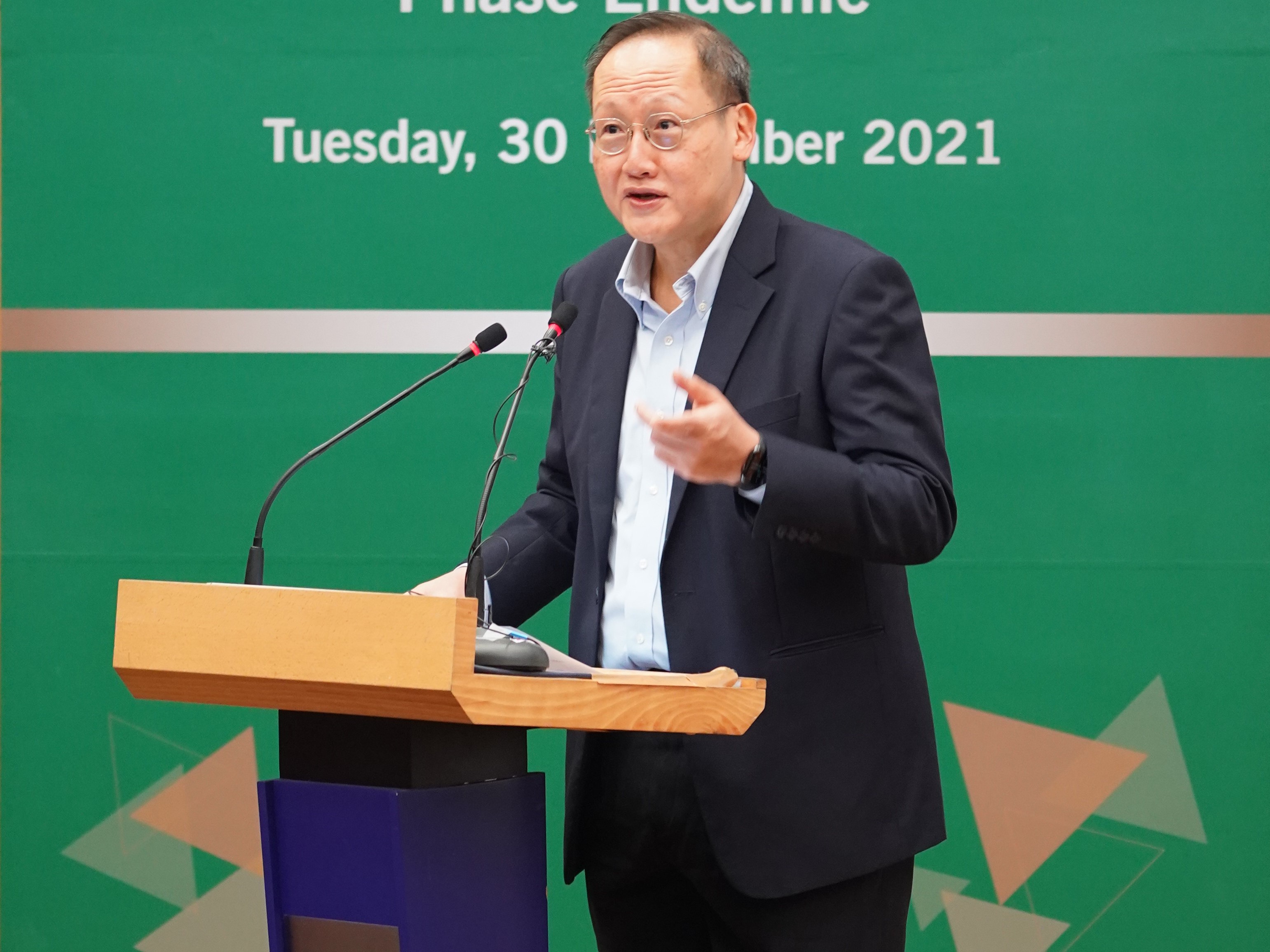
Address by the symposium’s Guest of Honour Dr Tan See Leng, Minister for Manpower and Second Minister for Trade and Industry
Older adults contribute accumulated human capital and experience that we can tap on to revitalise our economy following the pandemic, Dr Tan See Leng, Minister for Manpower and Second Minister for Trade and Industry, who was the Guest of Honour at the event, said in his address.
This will be especially important for Singapore, which, like the rest of the world, is grappling with an ageing population, but which is also experiencing these demographic pressures “more keenly than most [countries].”
“By 2030, only 0.7 locals will be entering the workforce for every one local exiting [the workforce],” Dr Tan pointed out. In response, “our social, our economic structures will need to adjust and adapt to this very profound demographic change.”
For example, he explained, “We will need to see how we can help our ageing population age more healthily. Beyond the individual benefits, this will reduce the strain on our healthcare systems.
“But it’s also equally important that we see this as a golden opportunity to tap on the accumulated human capital of our seniors to rejuvenate our economy,” he said, adding that more research on how technological solutions or managerial practices can be used to redesign jobs to harness the capabilities of senior workers more effectively, and mitigate any potential impact that ageing might have on productivity, would help.
“If we’re successful, we can move away from old cliches and concepts like prime working age… and instead focus on a new life stage called the Third Age, the transition between one’s primary career and full retirement. This Third Age should be as long, as extended, as possible, and the focus should be on reskilling to allow Third Agers to reach new peaks in their current roles or careers, or to switch towards contribution in different roles, such as in mentorship or volunteering roles,” he said.
Social isolation a ‘double-sided sword’ for seniors
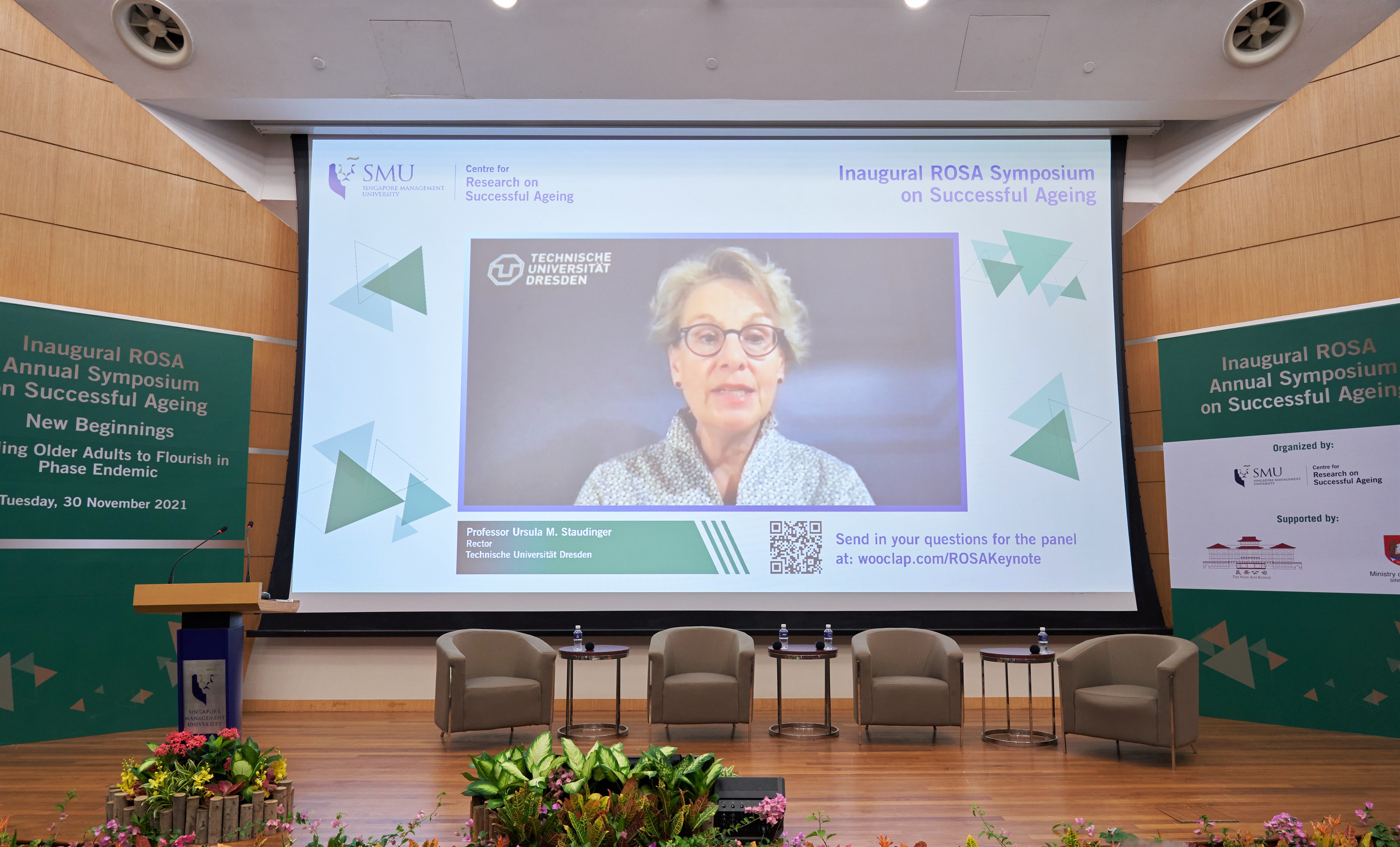
Virtual keynote presentation by Professor Ursula Staudinger, Rector of Technische Universität Dresden in Germany
Furthering the discussion on healthy and productive ageing, keynote speaker Professor Ursula Staudinger, Rector of Technische Universität Dresden in Germany, shared research that distinguished a person’s “functional age” from his or her “chronological age.”
“We have a tendency that we judge people in their capacities very much based on chronological age,” she said, when in fact there could be some 10 to 15 years of difference between the two.
Taking the audience through a model of human ageing with three tiers: biology, behaviour and context, Staudinger explained the way we age, both physically and mentally, is influenced by our genetics, emotional state of mind, education, work environment, financial status and more. The interactive natures of the three tiers together creates room for plasticity, allowing for each person’s development to be modified within biological limits.
During the pandemic, she added, negative plasticity increased among older adults due to loneliness as social distancing measures were imposed to protect them from the virus.
“[Social isolation] is a double-sided sword,” she emphasized. While it helps to curb transmissions, it also takes away social stimulus, emotional support, and physical contact – all of which are “crucial” to the well-being and even survival of older adults.
A cohesive, cognitively-agile community of seniors
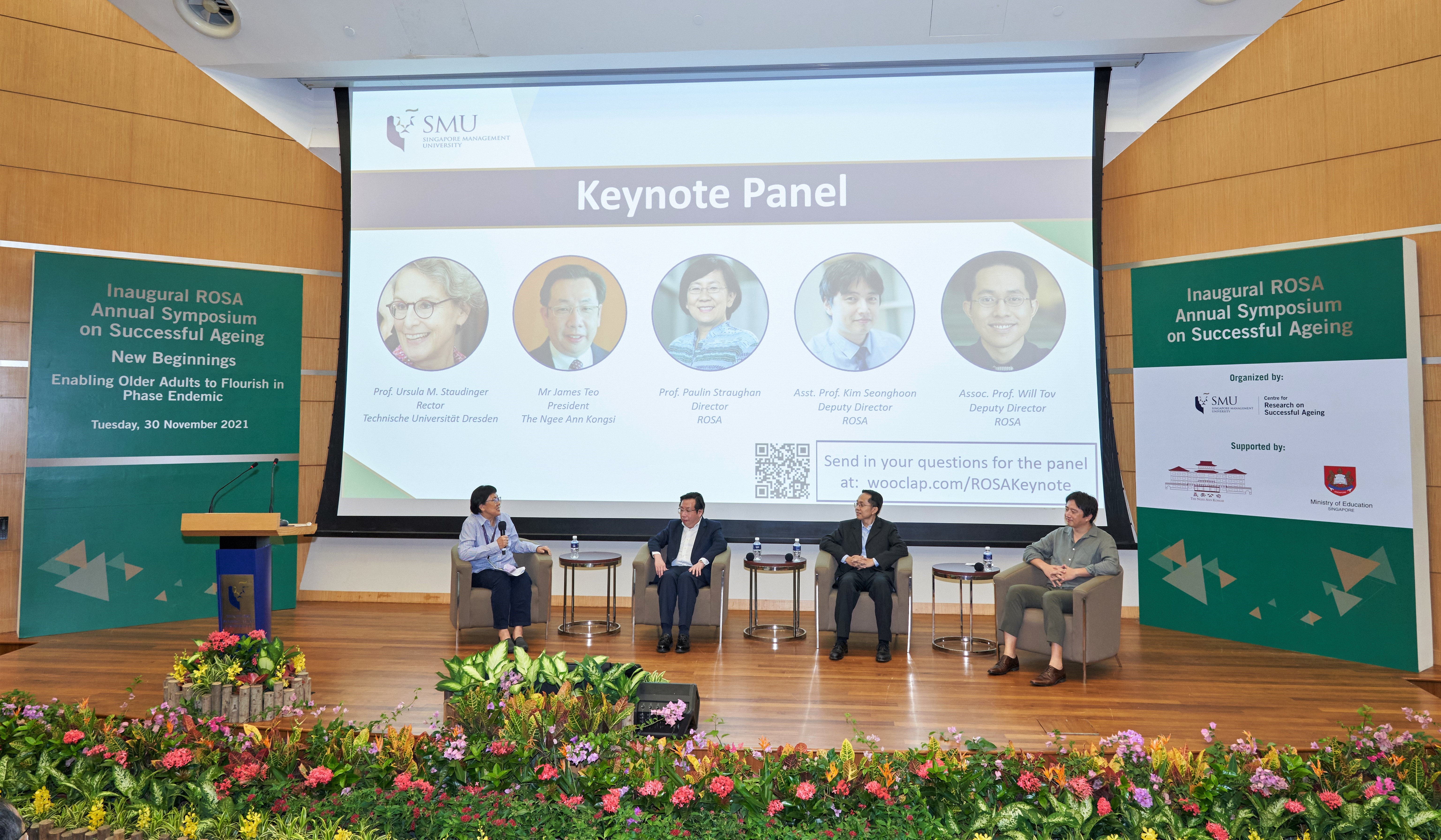
Keynote panel discussion featuring (left to right) Professor Paulin Straughan (moderator), Director, ROSA, Mr James Teo, President, The Ngee Ann Kongsi, Associate Professor William Tov, Deputy Director, ROSA, Assistant Professor Kim Seonghoon, Deputy Director, ROSA and Professor Ursula Staudinger (who joined the discussion virtually), Rector, Technische Universität Dresden
To increase the physical, social and psychological well-being of our older adults amid the new endemic normal, improving neighbourhood cohesion will be key, ROSA director Professor Paulin Straughan said, referencing data from the Singapore Life Panel® that showed higher levels of neighbourhood cohesion correlated with higher levels of well-being.
During the pandemic, “everybody suffered. But some suffered more than others,” she said. “The more connected you are with your neighbourhood, the better off you are.”
In ROSA surveys, respondents with a greater number of neighbourhood amenities within a 10-minute walking distance from their home were more likely to perceive their neighbourhood as more cohesive. “[This] underscores the importance of social environment for older adults,” Associate Professor William Tov, deputy director at ROSA, remarked.
Agreeing with Professor Tov, Assistant Professor Kim Seonghoon, also a deputy director at ROSA, added it would be important for the government to continue to invest in neighbourhood amenities such as libraries, parks, and HDB void decks to promote social cohesion, as residents have more opportunities to interact in these shared spaces.
Mr James Teo, president of philanthropic organisation The Ngee Ann Kongsi, said that even as we invest in building new shared spaces, we should ensure existing ones remain accessible to older adults. “When the circuit breaker actually came about, and [we] started to have all these… digital devices to check in, to get into certain places, I think this [gave] our older adults, in fact, some form of fear of going out,” he said.
Moving forward, speakers at ROSA agreed, partnerships between researchers, government and private sector stakeholders would be essential in formulating effective interventions that support the well-being of older adults, for a more robust society and economy.
Back to Research@SMU Feb 2022 Issue
See More News
Want to see more of SMU Research?
Sign up for Research@SMU e-newslettter to know more about our research and research-related events!
If you would like to remove yourself from all our mailing list, please visit https://eservices.smu.edu.sg/internet/DNC/Default.aspx
